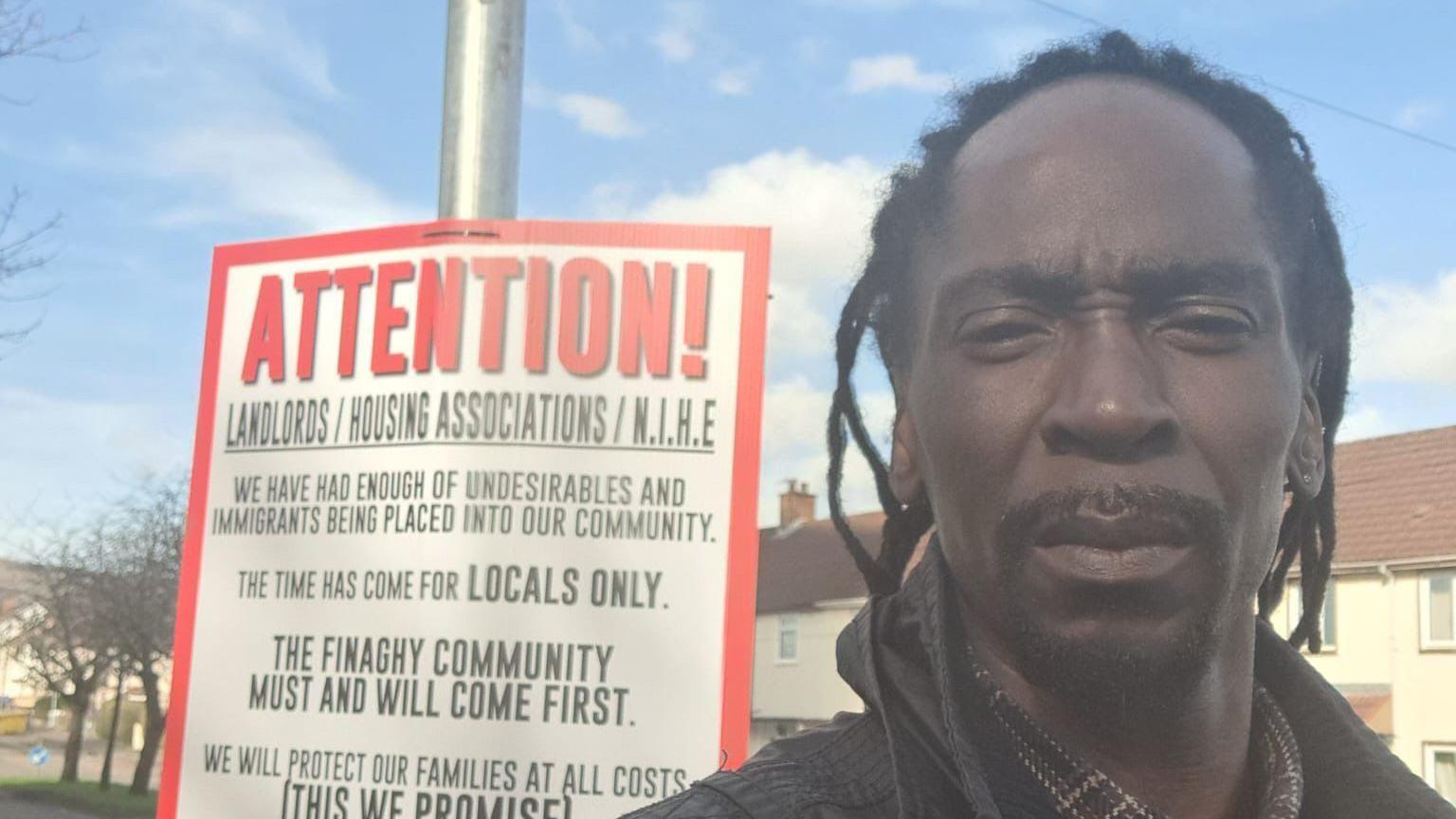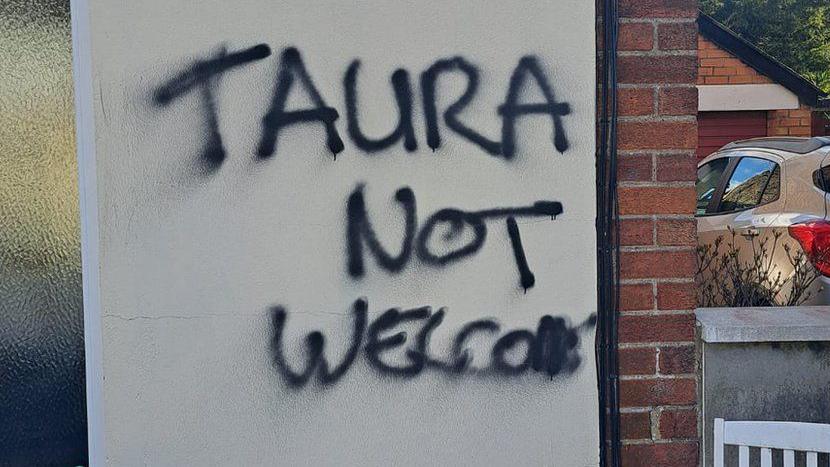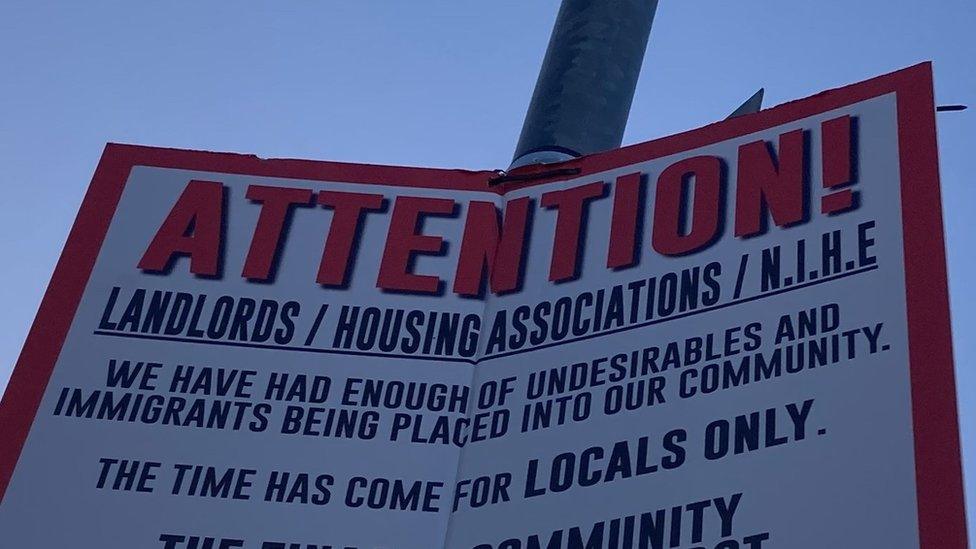Victim of racial intimidation moves house

Takura Makoni has lived in Northern Ireland for more than 20 years
- Published
A man whose home was daubed with racist graffiti has moved house.
Takura Makoni, who has lived in Northern Ireland for more than 20 years, spoke to BBC News NI when anti-immigrant signs were put up in the area of Finaghy where he lived.
His home was then sprayed with hate-motivated graffiti.
He told BBC Radio Ulster's Good Morning Ulster programme that this persuaded him "to find somewhere else to stay".
Mr Makoni had been living in the Finaghy area of south Belfast for almost five years.
The signs which read: "We have had enough of undesirables and immigrants being placed into our community" appeared in March and Mr Makoni reported them to the police.
Mr Makoni, who works with the African & Caribbean Support Organisation in Northern Ireland, said he did not believe the views expressed on the signs were shared by the wider community.
"I feel very welcome, I have made friends with neighbours and so on," he told BBC News NI at the time.
"So it is not that I felt the people around me, that I know, had these feelings about me, but you just feel weird."
Shortly after that, graffiti was sprayed on his home and he said he believed he was targeted for speaking out.

Takura Makoni's house in Finaghy was directly targeted
"This is the action of one person who can identify me. When you speak out, people target you," he said at the time.
"I have lived in Northern Ireland for over 20 years. I am at a place now where I am confident that Northern Ireland is a place that does not want to go in this direction, into a hateful place."
Following discussions with the Housing Executive, Mr Makoni was eventually given other accommodation in a different area.
He says these incidents have not deterred him from speaking out against racial intimidation.
"These kinds of incidents happen all the time to so many people who might not have access to the same resources as I do, or might not have as good English, so someone has to speak out for them," he said.
"It is important for me, as a community worker and someone from an ethnic minority background, to speak up for those who face intimidation."
Related topics
- Published6 March 2024
